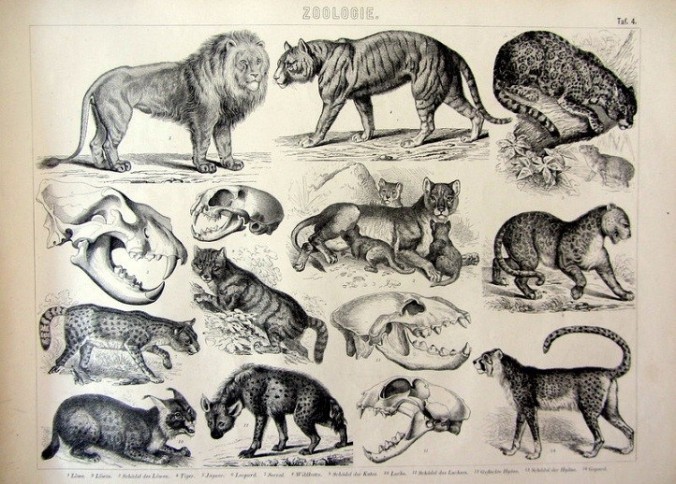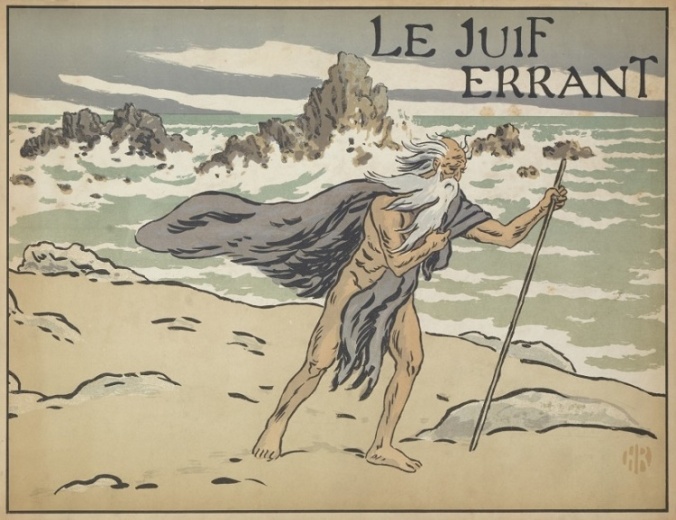When Jorge Mario Bergoglio, the man who would one day be “Pope Francis,” got in touch with Baltasar Fuentes Ramos during the summer break between school terms, he informed his former student that he was cordially invited to a second meeting with Borges, the famous writer. Bergoglio also filled Fuentes in on some events of the previous month. When Borges had been in Santa Fe for the student writing contest, he and Bergoglio had struck up something of a friendship. Borges had been considering writing a story about Catholicism for several years, and upon meeting the well-read, intelligent, and free-thinking seminarian, he felt as if he had finally found his consultant. They had bonded, in particular, over a shared morbid interest in the apostle Judas Iscariot. Borges had written a provocative story in 1944 called Three Versions of Judas, and Bergoglio had been reading the gnostic scriptures contained in the Nag Hammadi codices: that library of gnostic texts which had been unearthed in Egypt in 1945, and which were still somewhat rare at the time, and difficult to acquire in a good Spanish translation. Bergoglio was especially interested in the idea that there was a gnostic text known as the “Gospel of Judas,” which had been mentioned by a few Christian writers as one of the most heretical texts of all. Did it actually exist, or was it just a legend? Judas, decided the seminarian and the writer, should be the basis for their collaboration.
In order to facilitate his work with Borges, Bergoglio had asked the Jesuits to transfer him back to his home city of Buenos Aires. They had complied with his request, and he was now going to teach at the Colegio del Salvador there. He told Fuentes the Jesuits in Buenos Aires were amazingly progressive and ecumenical—“but it’s an atmosphere you would likely despise,” he wrote. “I was disappointed when you condemned me so harshly for being a modernist. You should understand that the Church has changed for the better now with the Second Vatican Council. The future is not to be feared, Baltasar. Ours is a living faith, not one stuck in the past. We have to open ourselves to new ideas. Even St. Thomas Aquinas took many of his principles from the philosopher Aristotle, who was not only a pagan, but someone whom few Europeans at the time had ever heard of. St. Thomas was not afraid of the strange or the unknown: he knew that Christianity can absorb almost anything. My own particular interest is in the gnostics of the Early Church. But I know you will not approve. Perhaps our friendship has been severed for good over these differences. Nevertheless, our mutual acquaintance Borges would like to see you.”
The meeting was set to take place in the Botanical Garden, not too far from where Fuentes was staying at his uncle’s rectory. It was also a favorite haunt of Borges’, who liked the fact that a small colony of stray cats had been allowed to make the gardens their home. Borges was an inveterate lover of cats, tigers especially, and enjoyed cats for being the miniature cousins of the majestic beasts. He agreed with Théophile Gautier that “God created the cat so that man might caress the tiger.” Borges told Fuentes this much when they met at the gardens. He loved not only the hazy atmosphere of the lush greenery and the fecund smells, but also the feline ambience of the free-roaming cats.

Borges maintained a lifelong fondness for cats, tigers in particular. “The tiger addressed in my poem / Is a shadowy beast, a tiger of symbols / And scraps picked up at random out of books, / A string of labored tropes that have no life, / And not the fated tiger, the deadly jewel / That under sun or stars or changing moon / Goes on in Bengal or Sumatra fulfilling / Its rounds of love and indolence and death.”
On the afternoon of the meeting, Fuentes excused himself from his duties at his uncle’s parish and showed up at the designated meeting spot on Santa Fe Avenue. He remembers Borges looking dapper in a beige seersucker suit and a dark paisley tie. Borges’ secretary Jana Filippovna was with him, as was Bergoglio, and there was also a peculiar man named Desmando Ruiz, who Fuentes remembers as a grubby, sinister-looking fellow in a raggedy janitorial jumpsuit, eating salted and habanero-spiced nuts from a paper bag with the words “El Fuego del Diablo” emblazoned on it, with the logo of a grinning little cartoon devil astride a blazing habanero pepper.
Ruiz was introduced to Fuentes as a handyman and plumber whom Bergoglio had worked with in one of his jobs as a teenager before deciding to study for the priesthood. Fuentes remembers Ruiz as looking every bit like a plumber: “it was easy to imagine him somewhere deep in the dank subterranean bowels of a building, with wrenches and pliers hanging from his belt, tinkering with leaky pipes. He was lanky, with long sinewy limbs, and he had a pasty, hideous, pock-marked face with the flat, puffy, broken-looking nose of a boxer. His fingers were calloused and dirty. But he had a definite intelligence about him. I can imagine him in a custodian’s closet, lying on a cot and reading philosophy, lazily leeching paid time from his employer. He was very much enamored with Hegel. Ruiz believed that everything in the world was progressing toward an ultimate end, that history was a long Hegelian process of ‘becoming,’ at the completion of which would be a true and perfect enlightenment—where all distinctions would be obliterated and all opposites would be resolved. Ruiz imagined that this would be a Marxist paradise on earth.”
During the time they worked together, Desmando Ruiz had pointed the young Bergoglio in the direction of the Jesuit philosopher Pierre Teilhard de Chardin. Ruiz himself had long since ceased to be a practicing Catholic, but he liked that Teilhard was applying Hegelian principles to Catholic thought. Teilhard had been enraptured with the works of Darwin, and he had attempted to meld Darwin’s evolutionary system with Catholicism. He held a heretical opinion that mankind was poised near the final stages of a process of God-guided evolution, and that the next phase in human development was that everyone’s consciousness would soon be subsumed into a single mass consciousness—a collective awareness of the elusive istigkeit spoken of in Eckhart’s philosophy. All human thought would exist in an omnipresent Oneness. Teilhard called this the Omega Point, and he claimed that the Omega Point itself would be the Second Coming of Christ, the parousia, since every soul would be drawn into and united with the Mind of God.
According to Fuentes, Teilhard de Chardin was Bergoglio’s favorite Catholic writer, and was the inspiration for Bergoglio becoming a Jesuit. “There are three important aspects of Francis’ vision for the Church,” says Fuentes. “Two are public, one is private. The foremost aspect is his liberalism. The things he stresses the most are the liberation theology and social justice advocacy that emerged from the Latin American atmosphere of the 1960s. That’s his most public side. The second aspect of Francis’ ideology is the philosophy of Teilhard. He believes that the Catholic Church must function as the spiritual side of a one-world government, whereby the whole of humanity can be drawn into the grand project of arriving at the Omega Point. You can see obvious hints of this in some of his writings and speeches.”
But the third aspect, Fuentes said, “is the most secret aspect, the one which he keeps hidden. And that aspect is his Gnosticism: a horrible set of gnostic beliefs concerning Judas. You are a traditional Catholic,” said Fuentes (meaning me, to whom he was writing), “so you would probably say that Vatican II and the decades that followed marked a betrayal of the Church’s traditions and teachings. But let me tell you something: Francis would agree with you. He believes this betrayal is very necessary. He even sees himself as a ‘second Judas,’ betraying Christ at the end of history in preparation for the Second Coming at the Omega Point. Even if you were to accuse Francis, directly to his face, of being an Antichrist, he would not, deep in his heart, deny it. Because he believes that the traditional ‘old Christ’ must be negated and overcome, in order to usher in the ecumenical age of a ‘New Christ’ who embraces all people and all cultures in a supremely syncretistic pan-religious version of Catholicism. This is Francis’ belief. I learned it that day in the Botanical Garden, as the five of us took our promenade among those tree-draped paths and humid greenhouses, listening to Bergoglio speak of these things with Borges, who was delighted with the weirdness of it all.”
Fuentes continued: “I think Borges saw Francis as a theological madman—and yet this kind of lunacy, of course, was just the sort of thing Borges found fascinating. But know this: the subtext of every word that Francis utters or writes contains his deeply-held gnostic theology of Judas,” Fuentes told me. “You can read it between every line.” Fuentes would eventually become aware of even further details of this demonic Christology, which involves a “sinful Christ” and a “transfigured Judas.” He pointed me toward an instance where Francis actually dared to weave a small bit of this material into one of his sermons, where he concluded by openly denying the faith of Chalcedon, saying that Christ on the cross “became sin” and was “completely emptied of his divinity.”
(For non-Catholic readers of this blog, it will suffice to know that the Council of Chalcedon solemnly taught that Christ was “like us in all respects but for sin”, meaning He was always sinless—thus at no point did He ever, as Francis suggests, “become sin.” Chalcedon also taught that Christ was “fully human and fully divine”; not, as Francis preached, that He ever became “emptied of his divinity.” Francis’ teaching is a gnostic misinterpretation of a passage of scripture, Philippians 2:7. In fact, Pope Pius XII specifically condemned this interpretation in his encyclical Sempiternus Rex Christus: “this is an opinion for which a rashly and falsely understood sentence of St. Paul’s Epistle to the Philippians supplies a basis and a shape. This is called the kenotic doctrine, and according to it, the enemies of the faith imagine that the divinity was taken away from the Word in Christ. It is a wicked invention, equally to be condemned with the Docetism opposed to it. It reduces the whole mystery of the Incarnation and Redemption to empty the bloodless imaginations”).
Eventually their conversation shifted to the Second Vatican Council, which had concluded just the previous month. Jana Filippovna remarked at how surprised she was at the document which effectively reversed the Catholic Church’s attitude toward Judaism and the Jewish people. Desmando Ruiz offered how pleased he was to see the undertones of Hegelian and Marxist thought diffused through so many of the decrees. Borges told a story of having been in Madrid the previous year to give a talk on Edgar Allan Poe; during conversation at a dinner party hosted by a Spanish academic, he caught the whiff of a merry rumor that the current pope had gone to seminary with a classmate who was nearly his own twin, so similar were they in appearance. (Borges liked the notion of doppelgängers and doubles. He’d written a story in 1960 called Borges & I about how his own public persona felt like a separate entity, and later, in 1969, he would author a story called The Other, about meeting his younger self on a peculiar park bench: a bench which served as a fulcrum in time—or an intersection between dreaming and reality—joining the elder Borges in Cambridge, Massachusetts with the younger Borges in Geneva, Switzerland).
The mention of doubles and twins swung the conversation back to Gnosticism, where the apostle Thomas is considered the twin of Jesus, and where in the Syriac “Gospel of Thomas,” Thomas and Judas are one and the same person: Judas himself is Jesus’ twin. At this point, the young Baltasar Fuentes Ramos began to wonder why they had invited a fifteen-year-old student, and a faithful Catholic one, no less, to this heterodox consortium. He had remained mostly quiet the whole time, still being in awe of Borges. But it was just then that Borges turned his attention to him. “There is much to speculate on in these matters,” he sighed, “but only one way to verify.” The great man turned his half-blind eyes to Fuentes. “We would have to interrogate someone who was actually present during the ministry of Christ. And you,” he said, “claim just such a person exists. Perhaps you will take us to meet him.”

The Botanical Garden of Buenos Aires. The stray cat population, which according to Baltasar Fuentes Ramos was just a “small colony” in 1966, is now a significant problem, exacerbated by uncaring people who choose to cruelly abandon their cats there.
